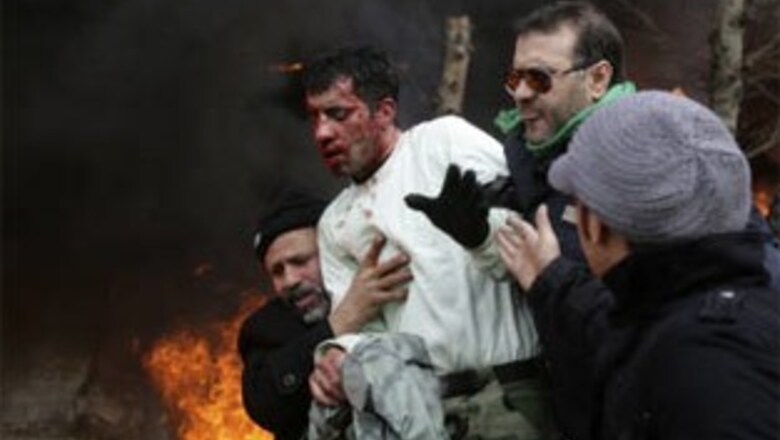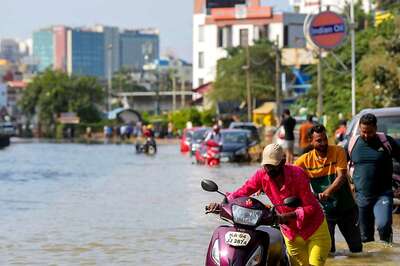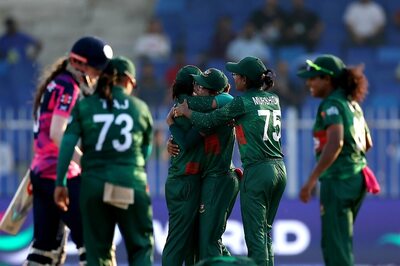
views
Tehran: An Opposition leader criticised Iran's hardline rulers on Monday for killing innocent people during a religious festival, a reformist website reported.
Police said five people died in Tehran when pro-reform protesters fought security forces on Sunday, the most violent clashes since a contested June 12 presidential vote sparked political turmoil across the Islamic Republic.
"What has happened to this religious system that it orders the killing of innocent people during the holy day of Ashura?", moderate cleric Mehdi Karoubi, who came fourth in the election, said in a statement, the Jaras website reported.
"Why is such a holy day not respected by the rulers?"
Opposition websites said police opened fire on protesters in central Tehran. Eight people were killed in the capital and other Iranian cities when tens of thousands of opposition backers took to the streets, they said.
The deaths were the first in street protests since the immediate aftermath of the disputed June election.
Among the dead was opposition leader Mirhossein Mousavi's nephew, whose death was described as a "martyrdom" by a Mousavi ally. State TV said "unknown assailants" killed Ali Habibi Mousavi Khamene.
Police said investigations were under way into the suspicious deaths and more than 300 protesters had been arrested in Tehran.
State television said in a headline that "police deny involvement in killings", and said that those detained included members of an exiled opposition group, Mujahideen Khalq Organisation (MKO).
Jaras said police shot and killed four protesters in central Tehran and that unrest had spread to other parts of Iran, including the holy city of Qom, Shiraz, Isfahan, Najafabad, Mashhad and Babol.
The reports could not be independently verified because foreign media are banned from covering protests.
The White House condemned the "unjust suppression" of civilians by the Iranian government and said the United States was on the side of protesters.
Unrest across Iran
The killings showed that the confrontation between the opposition and the clerical and political establishment had entered a volatile phase, in which the security forces appeared determined to stamp out the reformist movement.
The disputed re-election of hardline President Mahmoud Ahmadinejad has plunged Iran into its biggest internal crisis since the 1979 Islamic revolution, exposing deepening divisions in its ruling elite and setting off a wave of protests that the opposition says left over 70 people dead.
Officials say the death toll was half that number, including members of a pro-government Islamic militia.
The post-election turmoil has also made Iranian officials unable to resolve a dispute over Iran's nuclear programme, which the West fears is a cover to build bombs. Iran denies this.
Authorities had strongly warned the opposition to avoid using the two-day Shi'ite Muslim Tasoua and Ashura festival over the weekend to revive protests against the clerical establishment.
This year's Ashura coincided with the seventh day of mourning for leading dissident cleric Grand Ayatollah Hossein Ali Montazeri, who died a week ago at the age of 87 in Qom.
A spiritual patron of Mousavi's movement, he was a fierce critic of the hardline clerical establishment.
On Sunday evening, opposition supporters in northern Tehran chanted Allahu Akbar (God is Greatest) from rooftops, as they did in the months after the election. Witnesses reported a heavy presence of riot police in some squares.



















Comments
0 comment